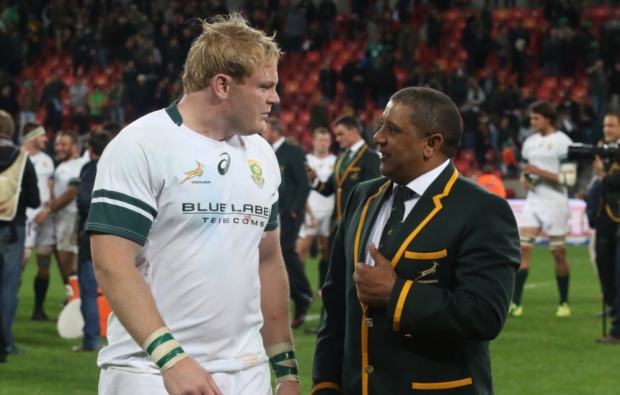The Springbok captain, post-Adriaan Strauss, must be a first-choice player whose selection is never disputed, writes MARK KEOHANE.
Test rugby’s operational principles and demands have no equal in professional rugby.
The most successful Test coaches invariably are more man managers than tracksuited, on-field specific technical coaches.
The captain of a Test team needs a different skill set to those players who captain at regional, provincial and club levels. The best man must play and the captain of a Test team should be the one player whose position is not a consistent selection discussion among the coaches, media and rugby public.
The Test captain has unique responsibilities and qualities. The most significant quality is that he is considered the best in his position and that his Test-playing credentials as a captain are secondary to his actual right to the starting position.
The most successful Test captains are those who have always done their most impressive talking through performance on the field and not purple prose and eloquence at a pre- or post-match media briefing.
The Test captain, ideally, should be the first name on the team sheet and not the first name in a media introduction disputing the merits of the player. No one should doubt the Test captain’s right to lead the side out on match day, least of all the player’s teammates.
Australia, with John Eales as captain, got it right and got the ultimate World Cup reward. Similarly England’s 2003 World Cup winner Martin Johnson and New Zealand’s 2011 and 2015 captain Richie McCaw.
These three, during their distinguished, influential and successful Test careers, had no equal in their respective positions.
Yet none of the trio asked for the comfort or security of a four-year plan and each of these brilliant rugby players wanted a situation where their selection was based on form rather than leadership experience. All three were often quoted as emphasising that the captaincy of ‘this Saturday’ should never be a guarantee to the accepted natural selection for the following Saturday. The captain’s right to selection has to be based on his performance as a player and not his ability to charm the sponsors, supporters or a media room.
The Test captain doesn’t have to win the popularity contest and his personality doesn’t have to talk to the validation of those who pay to watch the national team play. If he has a vibe that makes him likeable and his personality reflects the fantasy profile of captain courageous, then it’s a bonus. He manages on-field situations more than he exclusively influences and dictates them.
The Test team invariably features a handful of very capable club, provincial and regional captains, whose experience adds to the on-field leadership substance of the Test team.
The captain of the very best Test teams is usually the best player of that team and would more often than not make a World XV. He is a leader respected for his playing pedigree more than any motivational speeches.
The Springbok Test captain, post-Adriaan Strauss, must be a first-choice player whose selection (on form) is never disputed. He doesn’t have to be an ambassador to all things marketing or media. Like him or not, what should never be doubted is his worth as the Test team’s starting option. Strauss was never this player and by extension this national leader.
There is an unhealthy and irrational obsession within the South African rugby fraternity of who captains the Springboks. There is also a deluded sense of security afforded this person over the course of a four-year cycle.
The Springboks, more than most of the game’s Big Five, have been restricted and prejudiced at World Cups for applying this bizarre principle that the guy deemed the captain of the Springboks today has an automatic right to start at the World Cup in four years’ time. There can’t be any guarantees to a player made the Springbok captain and there can’t be anything other than selection reward because of the player’s obvious ranking as the No 1 in his position.
Springbok coach Allister Coetzee got it wrong with his choice of Strauss as his national captain and it didn’t need a first-up home defeat against Ireland to know this.
Strauss was not the form South African Super Rugby hooker in 2016 and he was also not the best South African rugby player specialising in the No 2 jersey. He is, and always was, secondary to Montpellier-based Bismarck du Plessis.
Coetzee must reward the best player (on performance) with the privilege of captaining the Springboks.
To invest in a smile, articulation and external public personality validation over the raw 80-minute rugby performance will again invite vitriolic discussion and will be more of a national divide than patriotic belief of one captain, one team and one country.
The starting XV selection must always be made first and from that XV will come the captain.
– This article first appeared in the October edition of SA Rugby magazine





